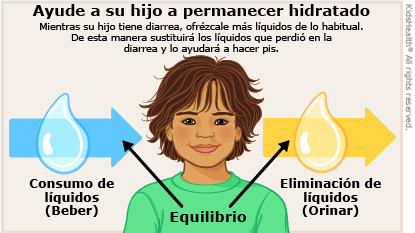A to Z: Dehydration
Dehydration occurs when someone loses more fluids than he or she takes in. When this happens, the body can't function properly.
More to Know
People most susceptible to dehydration are infants, children, older adults, and people with illnesses. However, anyone can be affected by dehydration.
Common causes of dehydration include inadequate fluid intake, diarrhea, fever, vomiting, excessive sweating due to hot temperatures or intense physical activity, and uncontrolled diabetes.
Signs and symptoms include a dry or sticky mouth; thirst; few or no tears when crying; eyes that look sunken into the head; dry, cool, or wrinkly skin; lethargy; and dizziness. Someone with dehydration will produce very small amounts of dark yellow or amber-colored urine.
Mild to moderate dehydration usually can be self-treated at home by drinking more liquids. Severe dehydration, however, is a medical emergency and must be treated with IV (intravenous) fluids in the hospital.
If you see signs of severe dehydration — such as extreme thirst, lack of sweating, rapid heartbeat, low blood pressure, delirium, or unconsciousness — go to the emergency room immediately.

Keep in Mind
Staying hydrated can help prevent dehydration, especially when someone is sick, physically active, or exposed to high temperatures.
All A to Z dictionary entries are regularly reviewed by KidsHealth medical experts.
















